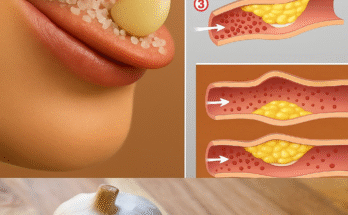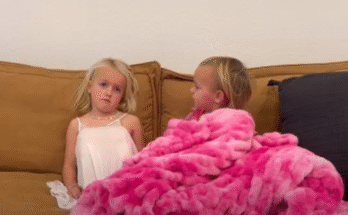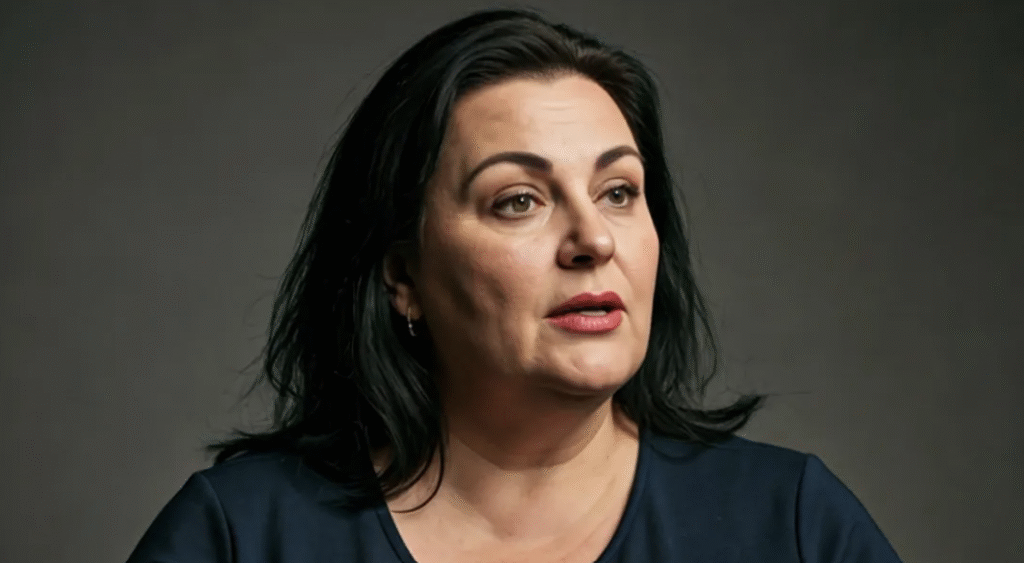
A woman speaking pointedly to someone | Source: Shutterstock
Sixteen-year-old Emily sat stiffly at the outdoor table, heart thudding as chatter and laughter swirled around her. It was her first family event with her dad’s fiancée Melissa’s relatives. Her dad, Jake, had reassured her all morning—Just be yourself, kiddo. They’ll love you.
She smoothed the fabric of her dress and tried to relax, ignoring the occasional glance at the scar that curved down her left cheek, a reminder of the accident two years ago. Most of Melissa’s relatives were polite, if distant, until Melissa’s mother, Diane, leaned in.
“You’re such a pretty girl,” Diane said, with a smile that didn’t quite reach her eyes. “You know, for the wedding photos, we could always Photoshop that little scar out. Just to make everything picture-perfect.”
The table fell quiet. Emily’s fork paused halfway to her mouth. Jake’s eyes darkened, his jaw tightening—but before he could speak, Emily calmly set down her fork, met Diane’s gaze, and said, clear and steady:
“Thanks, but I think I’ll keep it. I’d rather remember what I survived than pretend it never happened. Maybe we could Photoshop out the comments instead?”
The silence was deafening. Even the breeze seemed to stop.
Melissa’s eyes widened, then flicked to her mother with visible disapproval. A quiet “Wow” escaped from one of the cousins. Jake’s hand found Emily’s under the table and gave it a proud squeeze.
Diane blinked, her mouth opening, then closing again. She gave a tight smile and busied herself with her drink.
The conversation resumed, but with a new energy—one of quiet respect. Emily didn’t speak much for the rest of the evening, but she didn’t need to.
She had said everything that needed to be said. And from that moment on, no one dared question whether she belonged.
I’ll never forget the day I got the call telling me Lily had been in an accident. Time froze, and for one devastating moment, I thought my baby girl was gone.
The voice on the other end was calm—too calm. “She’s alive,” they said. “But you should come now.”
I remember dropping everything, sprinting out of the office, not even grabbing my keys at first. My hands shook so badly I could barely drive. Every red light felt like a personal attack. I didn’t breathe properly until I saw her—small and pale in a hospital bed, her face bruised, a gash running from her temple to her cheek.
She looked at me and whispered, “Hi, Dad,” like nothing had changed. But everything had.
The months after were harder than I ever imagined. Surgeries. Physical therapy. The day she looked in the mirror for the first time and didn’t cry—that was a victory. Not because the scar didn’t bother her, but because she was starting to accept it. To accept herself again.
So when Lily, now sixteen, stood in front of me before Melissa’s family dinner—hair curled, scar visible, chin lifted—I felt a different kind of heartbreak. One mixed with awe. She was nervous, sure, but brave. Brave in ways I’ll never be.
Then came Diane’s comment. That damn Photoshop remark.
And Lily—my girl, who once flinched at her reflection—just smiled and said, “I’d rather remember what I survived than pretend it never happened.”
She didn’t need me to defend her.
She had become her own voice, her own protector.
And I’ll never forget that moment either.
Because it was the day I realized Lily wasn’t just my daughter—she was my hero.
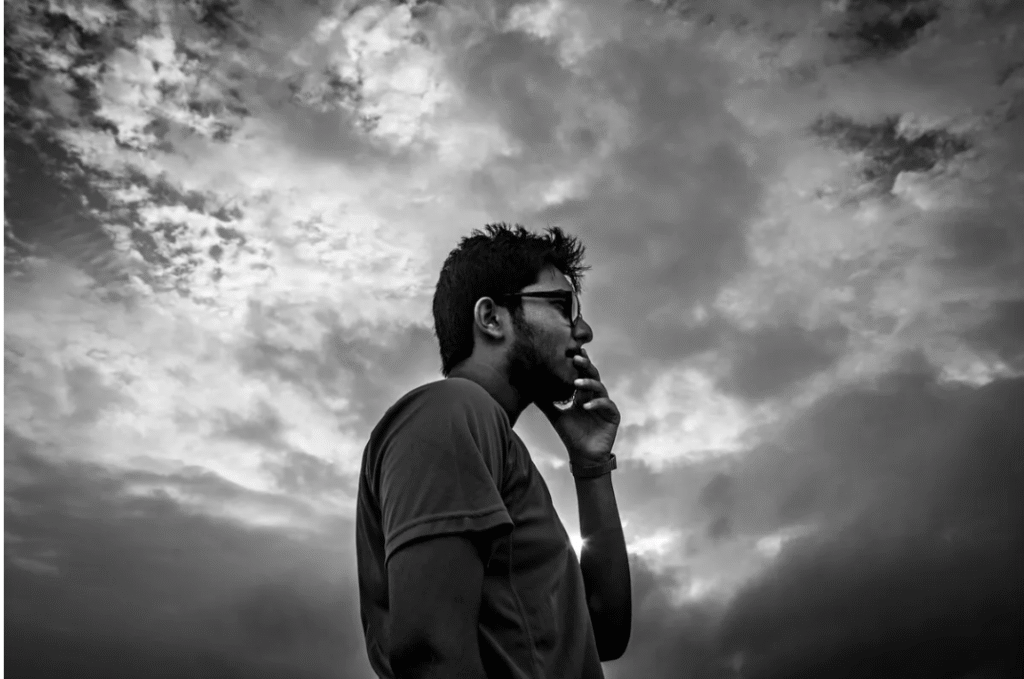
A distressed man | Source: Pexels
Lily was 11 and had gone camping with a friend’s family.
One propane tank, some reckless teens, and my daughter’s life changed forever.
I thanked God she didn’t lose her eyes as I sat beside her hospital bed, holding her hand through tubes and bandages, trying not to let her see me cry. She was lucky, the doctors said—no internal damage, no lasting injuries. But even “lucky” comes with scars.
The one on her forehead stretched just above her left eyebrow, angry and red at first, eventually fading into a thin, jagged line. They said it could be softened, made less visible with time or treatment. But there was no way to erase the way she stopped smiling in photos, or how she avoided mirrors for months.
And yet, Lily endured. Quietly. Bravely.
She grew into her scar. Not in spite of it, but with it.
So years later, when she walked into Melissa’s family dinner—chin high, scar uncovered—I saw the same courage she had at eleven, holding still as they cleaned her wound without crying.
The meal was pleasant, until Melissa’s mother leaned across the table, eyeing Lily’s forehead with a tight-lipped smile.
“For the wedding photos,” she said lightly, “we could always Photoshop that little scar out. Just to make everything picture-perfect.”
Everything stopped.
Before I could react, Lily looked her dead in the eye and said, calm as anything, “I’d rather remember what I survived than pretend it never happened.”
That was it.
No dramatics. No raised voice.
Just grace, and power.
I watched Diane blink, stunned into silence. Melissa looked horrified. The conversation shifted awkwardly, but Lily just went back to her salad like nothing had happened.
And me? I just sat there, holding back tears.
Because in that moment, I realized—
My little girl had grown into a warrior.
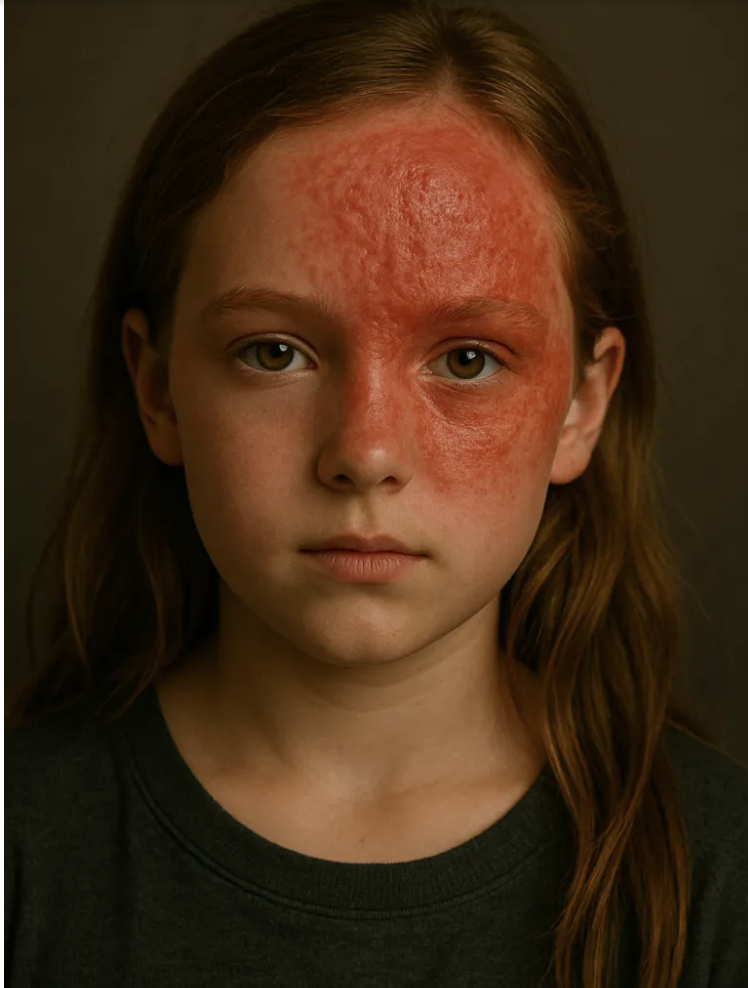
A girl with a facial scar | Source: DALL-E
Scars and Grace
I’ll never forget the day I got the call.
Lily had gone camping with a friend’s family. A weekend of roasting marshmallows, fishing, and sleeping under the stars—what could go wrong?
One propane tank. Some reckless teens. And my daughter’s life changed forever.
The voice on the phone said she was alive. But that was about all they could promise.
I remember driving faster than I ever had in my life, my hands trembling on the wheel, eyes stinging. My mind went to every worst-case scenario imaginable. But nothing prepared me for the sight of her—small and still in a hospital bed, tubes in her arms, her face bandaged. I remember her reaching for me, whispering, “Hi, Dad,” like it was just another Tuesday.
She was eleven.
She’d survived the explosion, but the burns stretched across her forehead and left cheek. The doctors called it “relatively minor” for the circumstances. But no one prepares you for the kind of injury that doesn’t fully fade.
There was skin grafting, stitches, ointments. But after all the healing, there was still a pale, jagged scar cutting across her forehead.
It was the first thing people noticed. Always.
At the store, adults stared. Some tried to look away when I caught them. Others didn’t bother. Kids were the worst—pointing, giggling. At school, the teasing started slowly. A whisper here, a comment there. Eventually, she came home in tears. They’d started calling her names—“Frankenstein,” “Scarface.”
She never said anything outright, but I saw it. The way she stopped brushing her hair back. The way she avoided mirrors. The way she faked being sick on picture day.
We put her in therapy. Got her into a group for burn survivors. Everyone told me she was “processing well,” that she was “adjusting.” And I wanted to believe them. I thought time and support would help her move on.
I thought I was doing everything right.
But it took just one incident to show me I was wrong.
I came home from work early one afternoon. The house was quiet. Her bedroom door was cracked. I called her name but heard no answer. When I peeked inside, I saw her standing in front of the mirror—concealer smeared across her forehead, scissors in her hand. Not pointed at herself, just clutched tightly like she didn’t know what to do with them.
“If it were gone…” she whispered, not knowing I was there, “maybe I could be normal again.”
My heart dropped. I walked in slowly, knelt beside her, and took the scissors from her hand. She looked at me—ashamed, afraid. I told her the truth. That she was normal. That she was more than normal—she was strong. Brave. That the scar wasn’t ugly—it was proof she survived.
“You are not the scar, Lily. But it is part of your story. And your story is something to be proud of.”
That day, something shifted.
We stopped pretending everything was fine.
She still had bad days. But she stopped hiding as much. Started speaking up in therapy. Slowly, she wore her hair up again. Started facing mirrors instead of avoiding them.
And by the time she turned sixteen, she was no longer the girl who flinched when people stared. She still noticed the looks—but she met them head-on.
When I got engaged to Melissa, Lily took it surprisingly well. I was worried how she’d feel meeting Melissa’s extended family, but she told me she wanted to come to the pre-wedding dinner. “It’s time,” she said, tugging a loose strand of hair behind her scarred ear.
She wore a pale green dress that brought out the warmth in her eyes. No makeup on the scar. I told her she looked beautiful. She rolled her eyes and said, “You’re my dad. You have to say that.” But I saw the flicker of confidence in her smile.
The dinner started fine. Melissa’s family was polite, a little stiff. Small talk flowed. And then, during a lull in the conversation, Melissa’s mother, Diane, turned to Lily with a carefully neutral smile.
“For the wedding photos,” she said, just loud enough for the whole table to hear, “we could always Photoshop that little scar out. Just to make everything picture-perfect.”
I felt the words like a punch to the gut. My vision tunneled. I opened my mouth, ready to shut it down—
But Lily beat me to it.
She didn’t flinch. Didn’t glance around nervously. She simply smiled, leaned in slightly, and said, crystal clear:
“I’d rather remember what I survived than pretend it never happened.”
Silence.
Utter, breathtaking silence.
Diane blinked. Melissa froze, her wine glass halfway to her lips. Someone at the far end of the table let out a small gasp.
Lily didn’t wait for a reaction. She just went back to her meal like she’d commented on the weather.
I sat there, staring at her. My daughter. The girl who once cried herself to sleep because of a scar. The girl who once begged to be invisible. Sitting there like the scar was her crown.
Melissa reached under the table and squeezed my hand. She didn’t say anything—but the look on her face said it all.
Pride. Awe. Respect.
No one brought up Photoshop again.
After dinner, on the ride home, I told Lily how proud I was. She shrugged, but I saw the smile tugging at her lips.
“I didn’t say it for them,” she said. “I said it for me.”
And maybe that’s the greatest strength of all—not standing up for attention, or for applause—but because you finally believe your story matters.
Lily’s scar never faded completely. And I hope it never does.
Because every time I see it, I don’t just see what happened.
I see what she became.
A survivor. A fighter. A young woman who stared down shame and said, You don’t get to win.
She’s not just my daughter.
She’s my hero.
